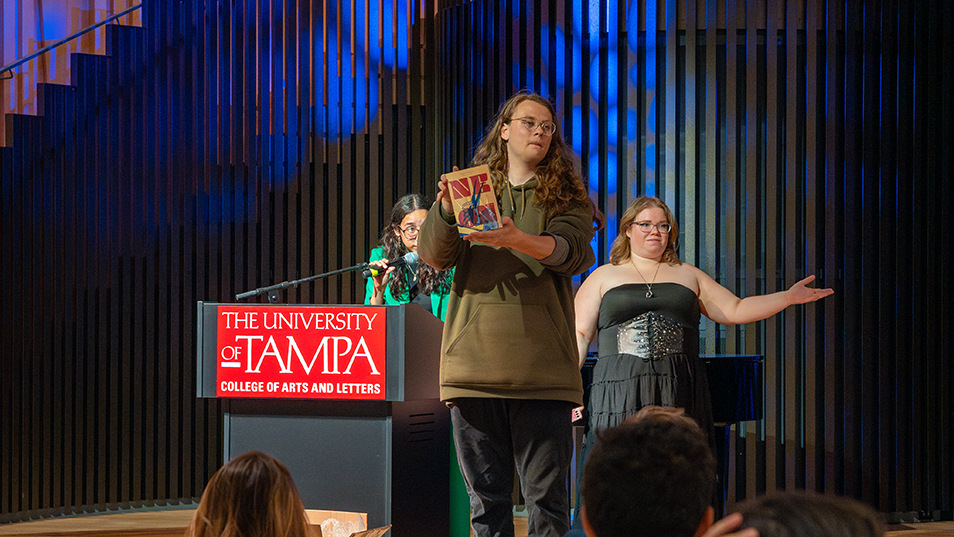Contact us
401 W. Kennedy Blvd.
Tampa, FL 33606-13490
(813) 253-3333
The latest issue of Neon has hit the stands, and it’s heavier than ever. Assistant editor Hex Brown '24 unveils the newest cover of Neon at this year's anthology launch party. Photo by Ethan Martinez '26

More UT News